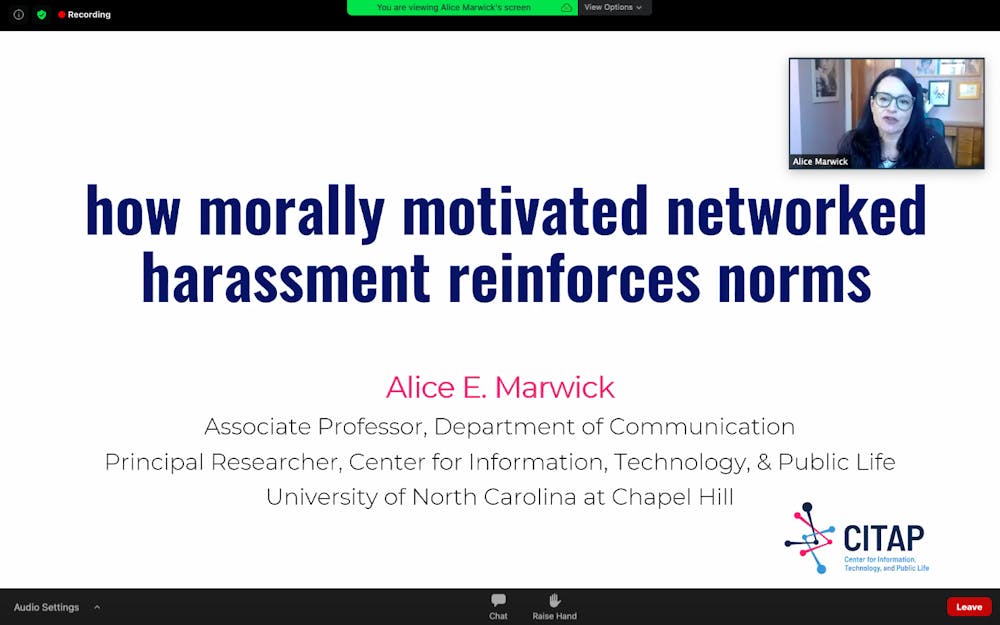Delight, honor and excitement — punctuated by an enthusiastic “hell yes!” from associate professor Daniel Matute — is a glimpse into the shared celebration of the four UNC associate professors who were awarded the Hettleman Prizes for Artistic and Scholarly Achievement. On Tuesday, the scholars each presented a short, virtual discussion on their research as part of University Research Week.
The Phillip and Ruth Hettleman Prizes for Artistic and Scholarly Achievement, established by UNC class of 1921 graduate Phillip Hettleman and his wife Ruth, are awarded to four young UNC faculty members each year to honor their innovative research, outstanding achievements and academic promise. The 2021 recipients include Alice Marwick, Nicholas Law, Daniel Matute and Cleo Samuel-Ryals.
Alice Marwick, an associate professor in the Department of Communication, studies online harassment, which she explained through an example of a woman named Elise.
Elise is the pseudonym for an Asian American classical musician who Marwick studied in her research. Elise tweeted criticism of a white-owned Chinese restaurant and received hate comments targeting her and her culture on her post.
“We don’t have a metric to describe this kind of harassment,” Marwick said. “We don’t have tools for how to determine if it is morally motivated or to reinforce social norms. My research aims to answer these kinds of questions.”
Nicholas Law, an associate professor in the Department of Physics and Astronomy, is designing one of the world’s largest telescopes. He researches exoplanets such as Proxima Centauri b.
“We’ve been studying Proxima for quite some time and one night we saw Proxima do this," Law said. "For a few minutes, it got 100 times brighter."
Law and his research team saw Proxima Centauri b experiencing superflares — bursts of energy 10 to 1,000 times larger than the biggest flares from the sun — which they had never seen before on this particular planet.
“Why can we come along in 2021 and say that we found something new about this planet we’ve been studying for so long?” Law asked.




